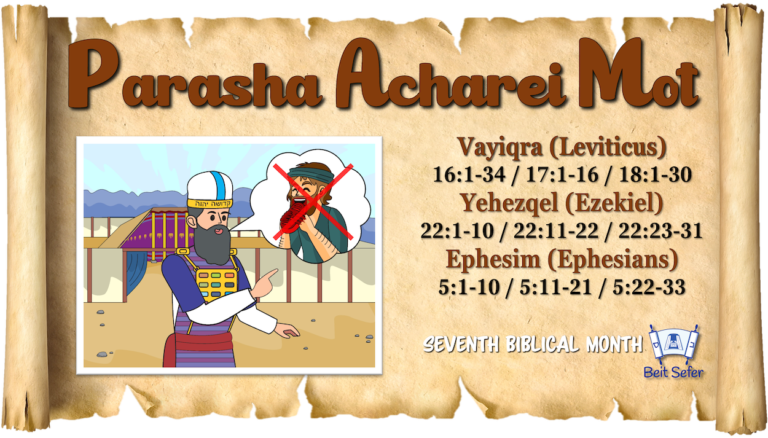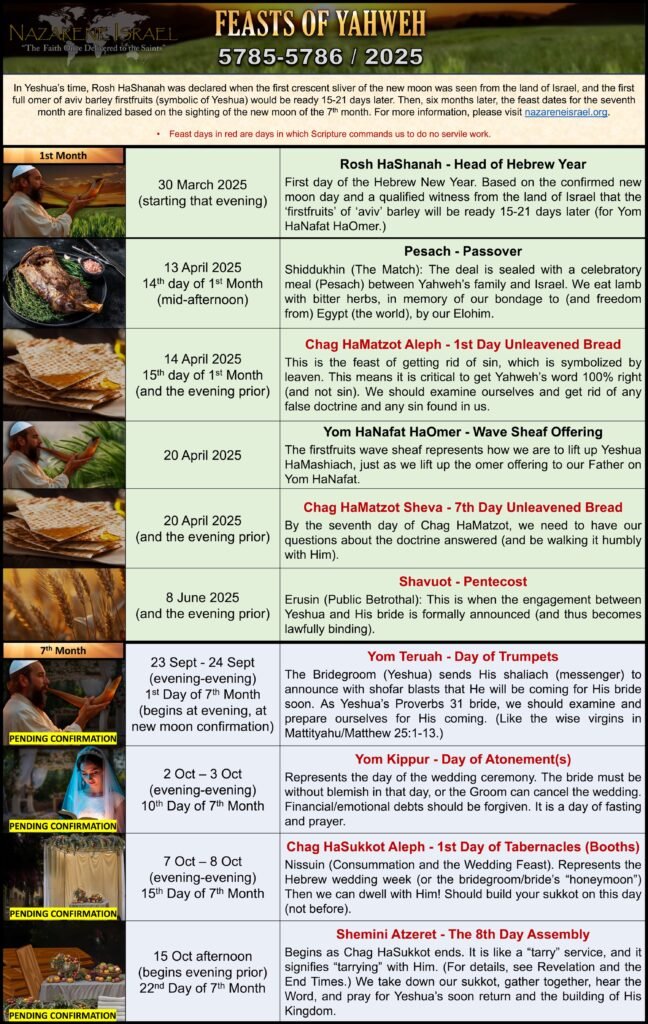Parasha Acharei Mot – Year 2 – Blood and Life.
Shabbat Shalom, Nazarene family.
This week we will study the Acharei Mot, portion of year 2, we will learn about the importance of respect for Yahweh in offerings and sacrifices. We will read that the Israelites were to make their sacrifices only in the place that Elohim chose, showing obedience and reverence. In addition, Yahweh forbids them to eat blood, explaining that life is in the blood, and this is sacred. By reading this passage, we will understand the importance of following biblical instructions, respecting Elohim’s laws and valuing life as something special and given by Him.
Vayiqra (Leviticus) 17:10-11
10 ‘And whatever man of the house of Israel, or of the strangers who dwell among you, who eats any blood, I will set My face against that person who eats blood, and will cut him off from among his people.
11 For the life of the flesh is in the blood, and I have given it to you upon the altar to make atonement for your souls; for it is the blood that makes atonement for the soul.’
This week corresponds to the reading of the texts (in bold):
- Vayiqra (Leviticus) 16:1-34 / 17:1-16 / 18:1-30
- Yehezqel (Ezekiel) 22:1-10 / 22:11-22 / 22:23-31
- Ephesim (Ephesians) 5:1-10 / 5:11-21 / 5:22-33
Summary of the weekly study, Year two:
Vayiqra (Leviticus) 17:1-16
In these verses, Yahweh instructs the Israelites on how they should offer animal sacrifices, emphasizing that they should only do so in the tabernacle, the place where He has decided to dwell. This teaching shows us the importance of obedience and of offering sacrifices correctly. In addition, Elohim forbids the eating of blood, explaining that the life of living beings is in the blood, and this must be treated with respect. By following these rules, the Israelites demonstrated their devotion and respect for Yahweh Elohim and His holiness. This passage teaches about obedience, respect for divine laws and the sanctity of life.
Yehezqel (Ezekiel) 22:11-22
In these verses, Yahweh denounces the corruption and sin of the inhabitants of Jerusalem, who have violated His laws and acted immorally. This passage mentions serious acts such as adultery, sexual immorality, and social injustice, reflecting widespread disobedience. Because of this behavior, Yahweh warns that He will pour out His wrath upon them, as a purification process in which they will be melted like metal in fire. The central message is that, because of their wickedness, the people will face Elohim’s judgment, but there will also be an opportunity for purification and restoration.
Ephesim (Ephesians) 5:11-21
In these verses, Shaul (Paul) exhorts believers not to participate in the works of darkness, but to expose them with the light of truth. He encourages them to live as children of light, practicing what is good, right and true. He warns of the need to live wisely, making good use of time and understanding the will of Yahweh. He also urges them to avoid drunkenness, and instead, to be filled with the Set-apart (Holy) Spirit, praising Elohim with psalms and spiritual songs. The passage teaches the importance of an upright, spiritual life, full of gratitude towards Yahweh.
–
Enjoy this fun activity with the whole family. Inside you will find development questions for the three weekly sections (Torah, Haftarah and Brit Chadashah). While the older ones discuss the questions and their answers, the younger ones can color the picture related to the teaching, solve a maze, find the 7 differences and much more. We encourage you to do it week by week and instill in your children the habit of studying Yahweh’s word as a family.
We hope you and especially your sons and daughters enjoy this effort. For it is through the study of the Scriptures that we can come to understand the love and care that Yahweh has always had for us. And also to perceive that He has been taking care of even the smallest detail, so that we can take care and enjoy all that He gives us. That is why it is so important that our children learn and grow up knowing that they are loved by the Creator of all that exists.
Shalom
To view the Tanach studies, click here
To view the Brit Chadasha studies, click here




